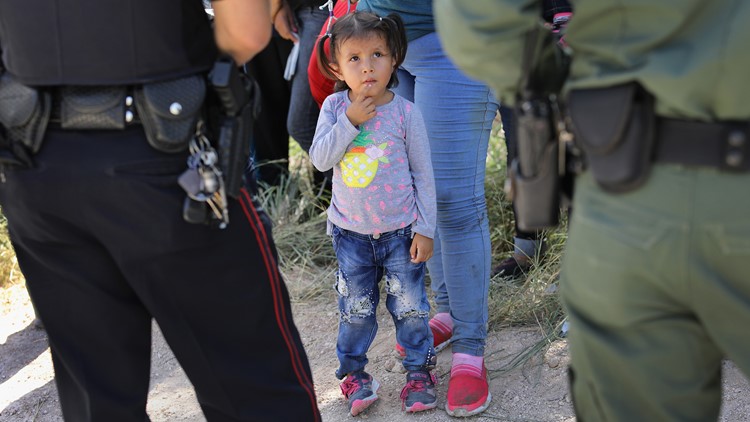President Trump signed an executive order Wednesday designed to keep the families of undocumented immigrants together while Republican congressional leaders try to come up with an immigration plan to douse a political firestorm surrounding the contentious "zero tolerance" policy.
Trump said the order should ease the controversy until Congress can act. GOP leaders believe a compromise bill, crafted by House Speaker Paul Ryan, has a chance of passing this week and could ultimately bring a halt to the heart-wrenching images of children separated from their parents at the border.
For now, Trump said zero tolerance will continue. It was not immediately clear how that would work while keeping families together and while obeying court rulings that require the release of children.
Here's a closer look at the issues:
What is the 'zero tolerance' policy?
In April, Attorney General Jeff Sessions announced a “zero tolerance policy” requiring arrest of all immigrants who attempted to enter the country along the Mexican border without going through legal border crossings. Before that, adults who crossed the border illegally by themselves often faced arrest, but anyone who brought a child with them would not be prosecuted. Sessions says the practice of bringing children became a form of "immunity" he wanted to end. "We cannot and will not encourage people to bring children by giving them blanket immunity from our laws," he said.
Why were kids separated from their parents?
Adults arrested for illegally crossing the border are sent to federal court under the custody of the U.S. Marshals Service and then placed in a detention center, according to Homeland Security. Under terms of the Flores Consent Decree and subsequent court rulings, children taken into custody when their parents are arrested must be released. They have been transferred to the U.S. Department of Health and Human Services for placement in a juvenile facility or foster care if no U.S. relative can be found.
What is the Flores Consent Decree?
Federal law does not mandate family separation at the border. However, the Flores Consent Decree has become a factor in the current situation. In 1985, two organizations filed a class action lawsuit challenging procedures for detention, treatment and release of children of undocumented immigrants. The eventual settlement and subsequent court actions require the release of children without unnecessary delay. However, if the parent was considered a threat to the child or faces criminal proceedings – now required under zero tolerance – the government must release the child to relatives or into the “least restrictive” accommodations possible within 20 days. In most cases, relatives are not available in the U.S., so kids are placed in temporary youth shelters operated by the Department of Health and Human Services.
Is crossing the border a felony or misdemeanor?
Most adult immigrants accused of illegally crossing into the United States are charged with illegal entry, a federal misdemeanor that can result in fines and up to six months in prison.
What's a 'tender age' shelter?
Trump administration officials have been sending babies and other young children forcibly separated from their parents at the U.S.-Mexico border to at least three “tender age” shelters in South Texas. Steven Wagner, an official with Health and Human Services, told the Associated Press the "specialized facilities" are devoted to providing care to children with special needs and "tender age" children under 13. He said the facilities provide well-trained clinicians and meet state licensing standards for child welfare agencies.
Where will children and families be detained now?
It's not clear exactly. ICE currently only has three family detention centers: two outside San Antonio and one in Berks, Pa., according to Melissa Lopez, an attorney and executive director of the Diocesan Migrant and Refugee Services, a group that provides legal services for children separated from their parents at the Tornillo, Texas Port of Entry. The two Texas locations have a total of 3,500 beds for mothers and children and the Pennsylvania location has 300 beds for fathers and children, Lopez said.
According to Trump's executive order, the Department of Defense and other agencies will have to provide housing for families on military bases if the Homeland Security Secretary so requests. The Department of Defense could also be asked to build facilities for families if necessary.
What will the reunification process for separated families be like?
Reunification will not happen immediately, according to Lopez. The separated parent will first have to go through his or her own legal proceedings before regaining custody-- which could take weeks.
How you can help
RAICES is the largest immigration legal services non-profit in Texas focusing on under-served immigrant children, families and refugees. The group is accepting donations for its family reunification and bond fund. Silicon Valley couple Charlotte and Dave Willner's Facebook fundraiser for RAICES has raised more than $10 million from more than 220,000 people. And the Texas Civil Rights Project is collecting donations for its legal fight on behalf of five families.
Jason Whitely contributed to this report.



